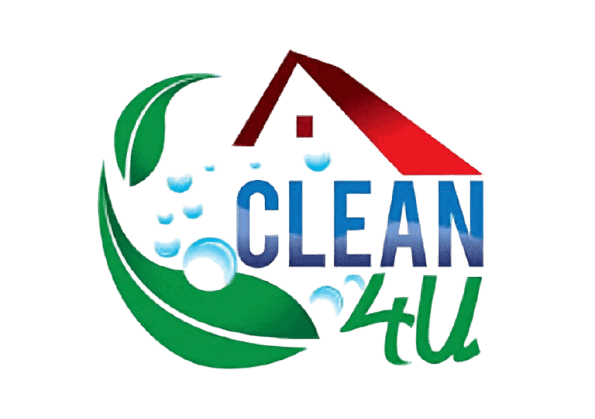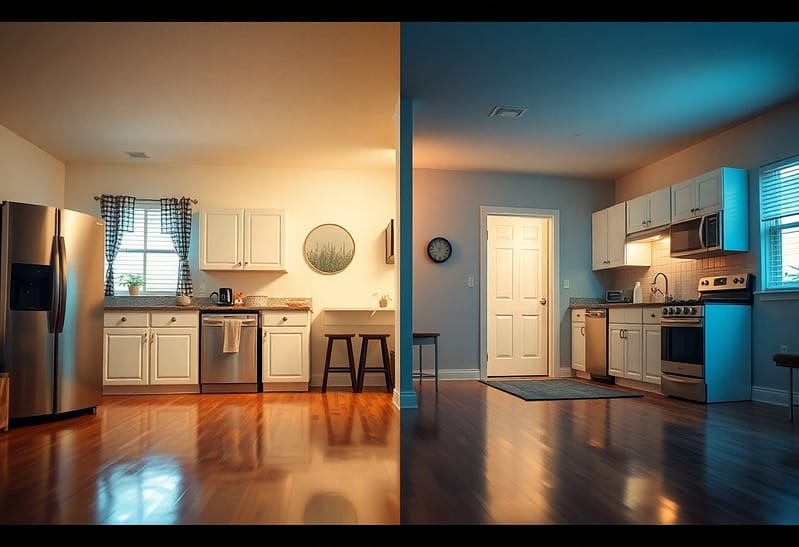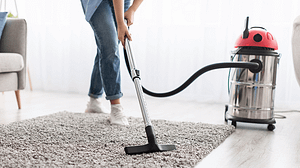There’s a significant debate surrounding whether deep cleaning a rental property justifies the hidden expenses involved. As a property owner or tenant, you might wonder if the investment leads to enhanced tenant satisfaction and reduced turnover rates. While the upfront cost can be substantial, a thorough deep clean can elevate the overall appeal of your space, potentially resulting in higher rental returns or improved relationships with tenants. In this post, we’ll explore the benefits and considerations of deep cleaning, helping you make an informed decision.
Key Takeaways:
- Deep cleaning can enhance tenant satisfaction and may justify higher rent pricing.
- Initial costs of deep cleaning may be offset by reduced turnover rates and improved property condition.
- Investing in deep cleaning can lead to positive reviews and increased property appeal.
Understanding Deep Cleaning
What is Deep Cleaning?
Deep cleaning goes beyond the standard cleaning routine and targets areas that are often overlooked. This process involves thoroughly sanitizing and cleaning surfaces, appliances, and fixtures to a level that removes dirt, grime, and allergens. For a rental property, deep cleaning can include tasks such as scrubbing carpets, washing windows, disinfecting bathrooms, and cleaning behind furniture and appliances. Your rental property is transformed from simply “clean” to “immaculately fresh.”
Unlike regular cleaning, which maintains the property’s appearance, deep cleaning focuses on restoring it. You may spend around $200 to $500 on a professional service, depending on the size and condition of your property. This investment not only improves the aesthetic but also contributes to the longevity of your assets.
Benefits of Deep Cleaning a Rental Property
When you choose to deep clean your rental property, you’re taking proactive steps that can enhance the overall tenant experience. A clean property can lead to higher tenant satisfaction, which is reflected in your rental income and tenant retention rates. Prospective tenants often evaluate properties based on their cleanliness, and a deep clean can make your listing more attractive in a competitive rental market.
Furthermore, deep cleaning can prevent issues such as mold and pest infestations, protecting your investment in the long run. A meticulously maintained property is less likely to encounter costly repairs due to neglect, keeping your expenses in check while maximizing your rental profitability.
Investing in deep cleaning not only provides immediate visual benefits but can also enhance your property’s value over time. Studies show that properties that undergo regular deep cleaning can command an increase in rent by as much as 20%, directly impacting your bottom line. Ultimately, deep cleaning is an vital strategy for ensuring your rental remains desirable, safe, and profitable.
Assessing the Costs
Hidden Expenses Involved
When considering deep cleaning for your rental property, it’s vital to recognize the hidden expenses that might arise. Aside from the upfront cost of hiring a cleaning service, additional fees may stem from repairs needed post-cleaning, such as fixing any damages that were uncovered during the thorough cleaning process. Additionally, consider the potential for increased utility bills if you opt for extensive cleaning solutions that require significant water and electricity usage. Regular maintenance to keep the property in top condition also adds to the long-term financial landscape.
Cost-Benefit Analysis
Conducting a cost-benefit analysis can help you understand whether deep cleaning your rental property is a wise investment. On one hand, the immediate costs may seem daunting, with professional services averaging anywhere from $200 to $500, depending on the size of the unit and the extent of the cleaning required. However, weigh this against the potential increase in rental income and tenant retention that a pristine property can foster. For instance, a well-maintained home can attract quality tenants willing to pay up to 10% more in rent, further offsetting your initial investment.
Ultimately, the benefits of deep cleaning extend beyond mere aesthetics; they contribute to tenant satisfaction, which can result in lower turnover rates and reduced vacancy times. If you find yourself in a competitive rental market, the advantages of having a spotless property can make a significant difference in attracting and retaining renters who value cleanliness and are ready to pay a premium for it.
Tenant Expectations
Maintaining Standards for Tenants
When you invest in a deep clean, you set clear expectations for your tenants regarding property maintenance. Tenants today seek more than just living space; they look for sanitation, comfort, and a well-cared-for environment. Ensuring that every corner of the rental property is spotless can lead to more positive tenant experiences, which ultimately reflects in your property’s reputation. Additionally, properties that consistently meet cleanliness standards tend to attract higher-quality tenants who are willing to stay longer and pay competitive rents.
Impact on Tenant Retention
A property that boasts a high level of cleanliness helps in fostering tenant loyalty. Studies show that up to 67% of tenants cite cleanliness as a primary factor in their decision to renew a lease. If you skip deep cleaning, you risk creating an uninviting atmosphere that could lead to higher tenant turnover. Comparatively, when your property is well-maintained and sanitized, tenants are not only more inclined to renew but also more likely to refer others, enhancing your rental prospects.
In essence, prioritizing deep cleaning influences tenant retention significantly. A well-kept property diminishes the likelihood of complaints and dissatisfaction, allowing for smoother landlord-tenant relationships. If your tenants feel comfortable and appreciate the cleanliness of their living space, they are less likely to seek alternative housing options, ensuring your property maintains a low vacancy rate.
Scheduling Deep Cleaning
When to Schedule Deep Cleaning
Timing plays a significant role in the effectiveness of deep cleaning. Scheduling it before a new tenant moves in can ensure that the property is in optimal condition, creating a positive first impression and reducing the likelihood of complaints. Additionally, consider arranging deep cleaning immediately after a tenant vacates; this provides a clean slate for the next occupant and allows you to identify any maintenance issues that may have arisen during their stay.
Another strategic time to consider is during seasonal transitions. For example, before the summer months, deep cleaning can address allergens or pests that may have accumulated during the winter. This proactive approach not only maintains the property’s appeal but also extends its lifespan by tackling potential problems head-on.
Frequency of Deep Cleaning
The frequency of deep cleaning should align with the type of rental property you manage and the habits of your tenants. A well-maintained property with long-term tenants might only need deep cleaning once a year, while a high-turnover rental may require it every few months to keep up with wear and tear. The American Cleaning Institute suggests incorporating deep cleaning into your maintenance plan, particularly for kitchens and bathrooms, as these areas are prone to grime and bacteria buildup.
Think about your tenants’ lifestyle. Properties with families or pets may necessitate deeper cleaning more frequently due to increased dirt and allergens. Analyzing tenant turnover rates and adapting your cleaning schedule accordingly can greatly enhance tenant satisfaction and property condition.
Establishing a routine for deep cleaning not only supports hygienic standards but also increases your property’s attractiveness in the rental market. Consistency helps ensure that every corner is addressed, particularly in high-traffic areas or those often overlooked during standard cleanings. You can consider consultations with cleaning professionals for tailored advice on the best frequency based on your property’s unique characteristics.
DIY vs. Professional Services
Pros and Cons of DIY Cleaning
When considering deep cleaning for your rental property, you might lean towards a DIY approach to save on costs. There are benefits to this route, including flexibility in scheduling and the familiarity of your own space. However, it’s important to weigh the drawbacks as well, such as the potential for inadequate cleaning and time constraints.
Pros and Cons of DIY Cleaning
| Pros | Cons |
|---|---|
| Cost-effective | Time-consuming |
| Flexibility in timing | Possible lack of expertise |
| Familiarity with property | Can miss hidden dirt |
| Access to preferred cleaning products | Physical effort required |
| No scheduling conflicts | Quality may vary |
Choosing the Right Professional Service
Selecting a professional cleaning service can significantly impact the outcome of your deep cleaning efforts. Consider starting your search by focusing on companies with strong reputations and positive customer reviews. Reach out to multiple providers to gather quotes, and don’t hesitate to ask about their cleaning processes and products to ensure they align with your expectations. Validate their credentials and ensure they have proper insurance coverage, which protects you from any liability during the cleaning.
It’s also wise to check for specialized services that cater to your specific needs, such as carpet cleaning or mold remediation. A qualified service will not only remove contaminants but also leave your property prepared for future tenants, enhancing your investment’s long-term value. Look for professionals who offer guarantees on their work, ensuring peace of mind as you transition between tenants.
To wrap up
Taking this into account, deep cleaning a rental property can significantly enhance your investment’s appeal. While the hidden expenses may seem daunting at first, the long-term benefits often outweigh these costs. A well-maintained space not only attracts quality tenants but can also justify higher rental rates, leading to increased profits over time. You need to consider the value of a clean, inviting environment that fosters tenant satisfaction and encourages lease renewals.
Ultimately, investing in deep cleaning is not just about immediate aesthetics; it is about protecting your property’s value and ensuring a positive rental experience. By prioritizing cleanliness, you set a standard for your rental that reflects well on you as a landlord. Balancing the upfront costs with the potential for higher returns makes deep cleaning a savvy investment for your rental property.
FAQ
Q: What is deep cleaning in the context of rental properties?
A: Deep cleaning involves a thorough cleaning process that addresses areas not typically covered in routine cleaning. This includes carpet shampooing, upholstery cleaning, deep scrubbing of kitchen appliances, and sanitizing hard-to-reach areas such as under furniture and inside cabinets.
Q: How can deep cleaning affect the rental property’s condition and value?
A: Deep cleaning can significantly enhance the overall condition of a rental property, making it more appealing to potential tenants. A well-maintained property can lead to higher rental prices, reduced vacancy periods, and positive reviews, ultimately contributing to long-term value retention.
Q: What are the potential cost benefits of investing in deep cleaning before renting out a property?
A: Investing in deep cleaning can reduce maintenance costs in the long run by preventing issues that arise from neglect, such as mold or pest infestations. Additionally, a clean property can attract tenants quickly, minimizing rental downtime and ensuring consistent income.







